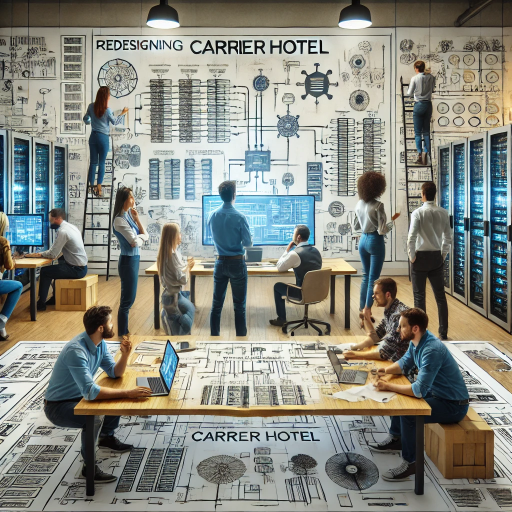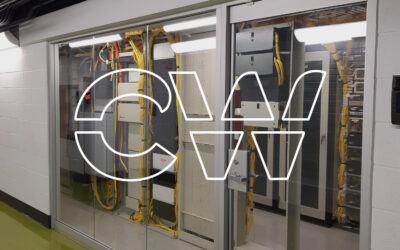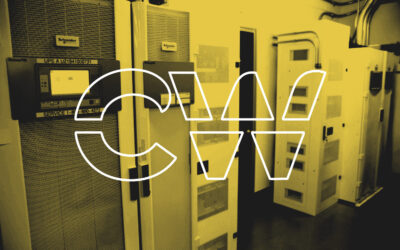It’s the perfect time to re-engineer Carrier Hotels for several reasons:
Increasing capacity:
As data usage continues to grow exponentially, carrier hotels must be re-engineered to accommodate higher data volumes. This involves expanding the physical infrastructure, such as adding more server racks, networking equipment, and power and cooling systems, to support the increased demand for data processing and storage.
Upgrading infrastructure:
Technology evolves rapidly, and carrier hotels must stay up to date with the latest infrastructure advancements. This may involve upgrading network equipment, adopting faster and more reliable communication protocols, improving power distribution systems, and implementing more efficient cooling mechanisms. These upgrades help ensure optimal performance, reliability, and scalability of the carrier hotel’s infrastructure.
Enhancing energy efficiency:
Energy consumption is a significant concern for carrier hotels due to the massive amounts of power required to operate servers and cooling systems. Re-engineering efforts focus on improving energy efficiency by implementing more efficient cooling technologies, optimizing airflow management, adopting energy-saving hardware, and leveraging renewable energy sources. These measures help reduce operational costs and contribute to sustainability goals.
Enabling new technologies:
The emergence of new technologies, such as 5G, edge computing, and Internet of Things (IoT), necessitates re-engineering carrier hotels to support these advancements. For example, carrier hotels may need to integrate edge computing capabilities by deploying infrastructure closer to end-users and enabling low-latency connections. They may also need to upgrade networking equipment to support the increased bandwidth and low-latency requirements of 5G networks.

Improving security:
Security is a critical aspect of carrier hotels, as they house vast amounts of sensitive data. Re-engineering efforts may focus on enhancing physical security measures, such as access controls, surveillance systems, and security protocols. Additionally, cybersecurity measures, including advanced firewalls, intrusion detection systems, and encryption mechanisms, need to be regularly updated to protect against evolving threats.
Adapting to regulatory requirements:
Regulatory compliance is a crucial aspect for carrier hotels, especially considering data privacy and protection regulations. Re-engineering efforts may involve implementing additional security measures, data encryption, and robust data governance practices to meet regulatory standards. Compliance with emerging regulations often requires modifications and upgrades to the existing infrastructure and processes.
Optimizing operational efficiency:
Re-engineering carrier hotels also involves streamlining operational processes and workflows. This can be achieved through automation, intelligent monitoring systems, and advanced analytics that provide insights into infrastructure performance, capacity planning, and maintenance requirements. These optimizations help reduce downtime, improve resource utilization, and enhance overall operational efficiency.



